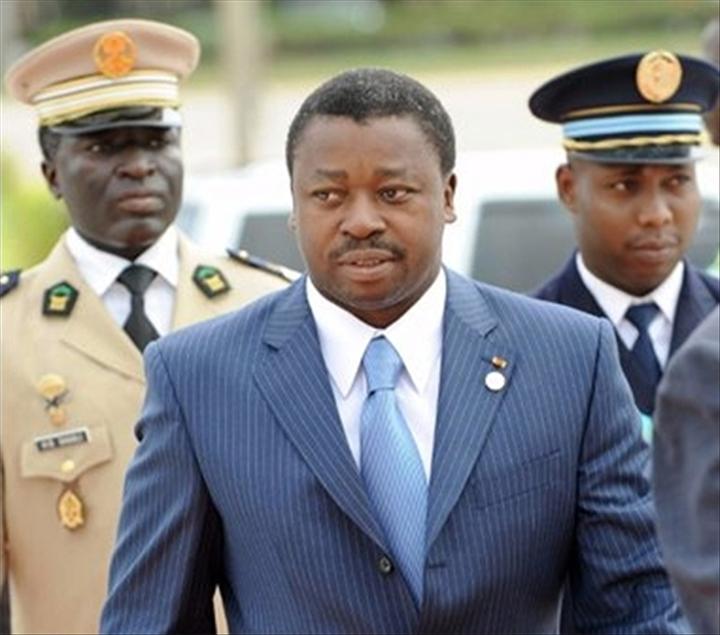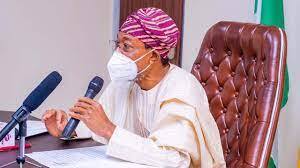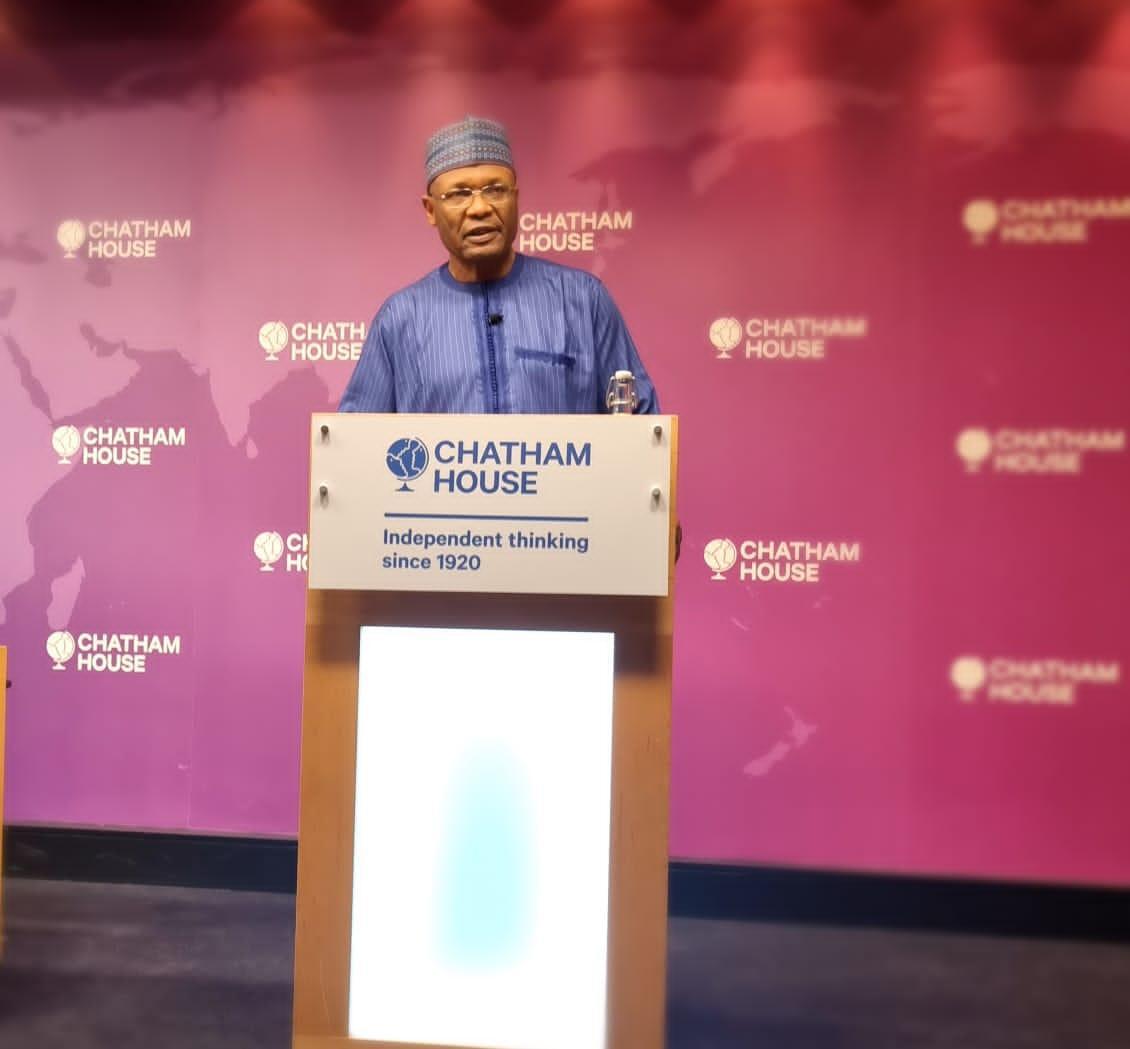By Paul Ejime
Abuja, April 29, 2024 – The international community, particularly ECOWAS and the African Union, have been passive or at best non-committal towards events leading up to Togo’s 29 April 2024 Parliamentary and Regional elections, which were overshadowed by controversial constitutional and electoral reforms, with potentially far-reaching consequences.
Parliamentary elections are crucial to Togo’s governance system, and more so with the constitutional changes recently pushed through by President Faure Gnassingbé’s government.
An estimated 4.2 million Togolese voters were expected to vote on Monday to elect a 113-seat Parliament, up from 91, and 179 regional councillors from more than 2,348 candidates, including 593 women.
It is the country’s first regional election with balloting in more than 14,200 polling stations nationwide.
The government declared Monday a public holiday and the country’s borders were closed for the elections.
Members of Parliament are elected by closed-list proportional representation from multi-member constituencies ranging in size from two to 10 seats with the seats allocated using the highest average method.
Togo’s political life has been dominated for more than five decades by the ruling Union for the Republic (UNIR), led by President Faure Gnassingbé, who has been in power since the death of his father Gnassingbé Eyadéma in 2005.
After Togo’s independence from France in 1960, the late Eyadéma, who had served in the French army, was involved in two military coups, first in 1963 and then, in1967, when he seized power until his death.
After seizing power as interim president in 2005, the young Eyadéma was elected to the presidency later the same year and then re-elected in 2010 and 2015.
However, the heavily criticized electoral processes and what analysts call “dynastic democracy” are characterized by repression of the opposition and unilateral modifications of the constitution.
The 2018 parliamentary elections were boycotted by the C14 Alliance, the main opposition group of fourteen parties, over allegations of irregularities in the electoral process and Faure’s refusal to abandon his constitutional review project.
Having failed to reset the presidential term to allow him to remain in power beyond the third term, which ended in 2020, the campaigns for the 2018 parliamentary elections were marked by repression against demonstrators, resulting in several deaths and the government’s blanket ban on all marches or public gatherings in mid-December.
In the absence of any real opposition, the UNIR retained its absolute majority in Parliament, winning 59 of the 91 seats and with a sharp increase in the number of independent deputies to 18, while the Union of Forces for Change (UFC) and four other groups shared the remaining seats.
Even so, the UNIR still failed to get the four-fifths majority of seats required for a constitutional amendment.
However, in 2019, the government still managed to amend the constitution almost unanimously, which could allow Faure to remain in office until 2030.
He was re-elected in the first round of the 2020 presidential election with more than 70% of the vote, a result contested by the opposition which accused the government of electoral fraud.
The 2024 Parliamentary elections were to be held on 13 April 2024, but on March 25, the parliament approved the constitutional reforms changing the country’s system of government from a presidential to a parliamentary model and the method of voting for the president from direct to indirect.
Under the new system, executive powers are vested in the Prime Minister/President of the Council of Ministers, voted by fellow parliamentarians.
The President of the Republic will be more a less a ceremonial position.
As a result of heightened political tension and outcry against the reforms, President Faure paused the process and ordered an indefinite postponement of the elections.
On 19 April, the Parliament eventually approved the reforms by 87 votes and the government then rescheduled the national elections to 29 April.
Some opposition parties and civil society groups described the postponement as a ploy by the regime to “endorse its constitutional coup,” but the protests they called for from 11 to 13 April, were suppressed since protests are banned in the country.
On 23 April, the request by the Catholic Church to deploy observers to the elections was also rejected by the Electoral Commission, which questioned the group’s source of funds.
Foreign journalists are barred from covering the elections, but ECOWAS, the regional economic bloc, the African Union, and the International Organization of La Francophonie have deployed observation missions at the request of Togolese authorities.
ECOWAS’ 40-member Observation Mission is led by Gambia’s former Vice President Mrs Fatoumata Jallow-Tambajang.
This is even though the pre-election constitutional and electoral reforms are in clear violation of the ECOWAS 2001 Supplementary Protocol relating to the Mechanism for Conflict Prevention, Management, Resolution, Peacekeeping, and Security, otherwise known as the Supplementary Protocol on Democracy and Good Governance.
Article 2(1), SECTION II of the Protocol states that “No substantial modification shall be made to the electoral laws in the last six (6) months before elections (in member States), except with the consent of a majority of political actors.”
To further complicate matters, ECOWAS had issued two different press statements before deploying its recent fact-finding mission of 15-20 April to Togo.
The first press release said the mission was “exploratory,” and would consult with stakeholders against the background of recent political developments, while the second statement said it was solely a “pre-election observation mission.”
By contradicting itself instead of asserting a principled stance on Togo, especially after the successful Presidential election in Senegal, analysts are of the view that ECOWAS has missed a golden opportunity to burnish its dented image and reputation in the wake of four of its member States – Mali, Guinea, Burkina Faso, and Niger – under military dictatorships.
Mali, Burkina Faso, and Niger have served notice of their intention to quit ECOWAS altogether, citing the organization’s inconsistency or double standards, in dealing with “constitutional, political or electoral coups,” as against “military coups,” as one of the reasons.
While military takeover of governments cannot be justified, the same 2001 ECOWAS Supplementary Protocol, has provisions on Zero-Tolerance for unconstitutional change of government, which application should not be limited to military putsches alone.
Ardent followers of Togo’s chequered political history know that the latest controversial constitutional reforms are part of a grand ploy for tenure elongation by Faure similar to former Senegalese President Macky Sall’s failed political manoeuvrers.
Faure has been propped by Togo’s ethnically divided military, notorious for repression and their strong backing for his father, who transmuted from a soldier to a politician during his 38-year iron-fist rule.
The lack of visionary and dynamic leadership in ECOWAS allowed Faure to break ranks and bypass regional sanctions to cozy up with the military juntas in the region without any consequences.
The outcome of Monday’s elections might pan out in Faure’s favour, but how long Togo’s generally docile population will tolerate the Eyadema dynasty in power remains to be seen!
With its lack of cohesion, alienation of the estimated 400 million Community citizens, and attendant reputational damage, ECOWAS risks avoidable dismemberment, if urgent steps are not taken to quickly seal its gaping fault lines and disunity.
The regional integration vision of the founding fathers of the organization, which will be 50 next year is in serious peril. (GBN) Ejime is an Author, Global Affairs Analyst, and Consultant on Peace & Security and Governance Communications




